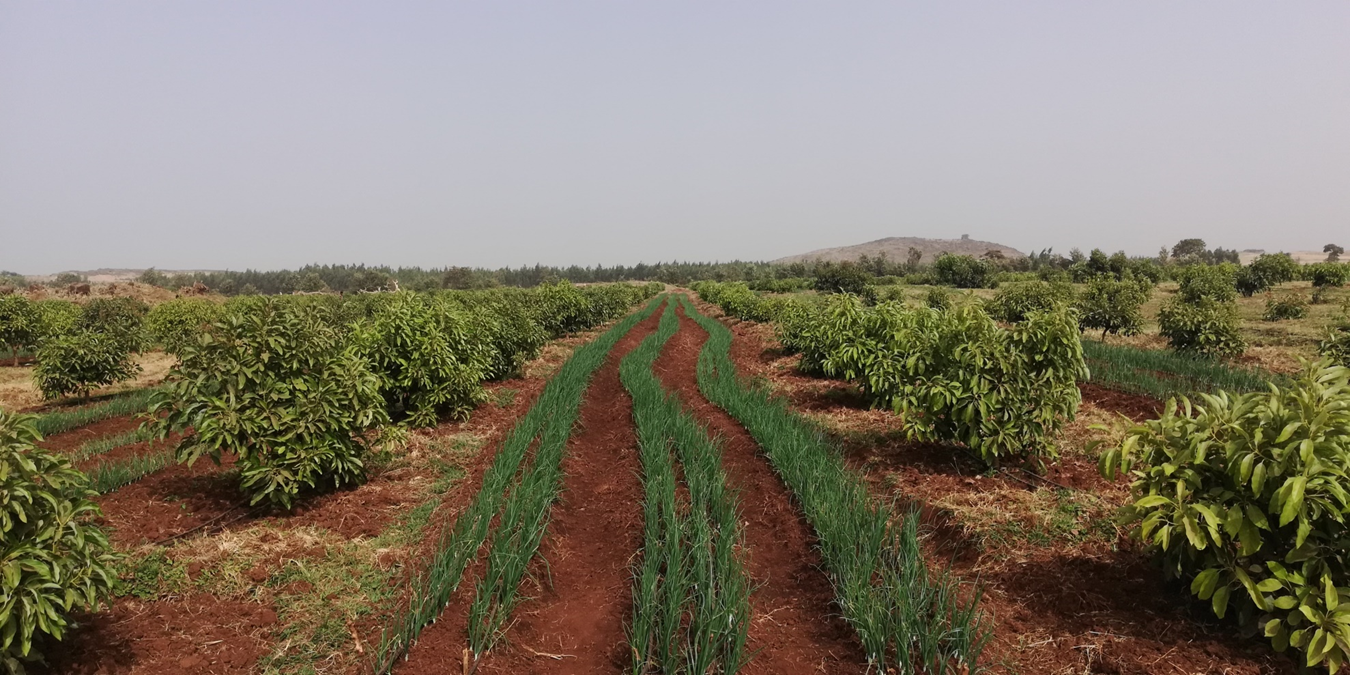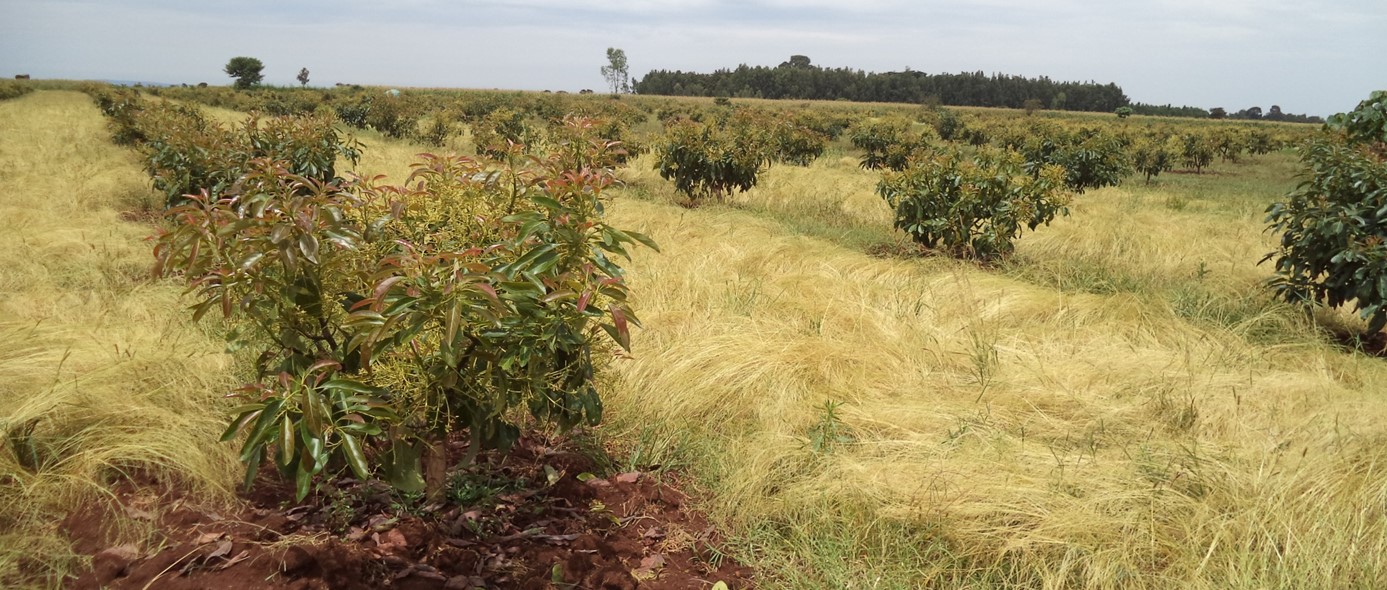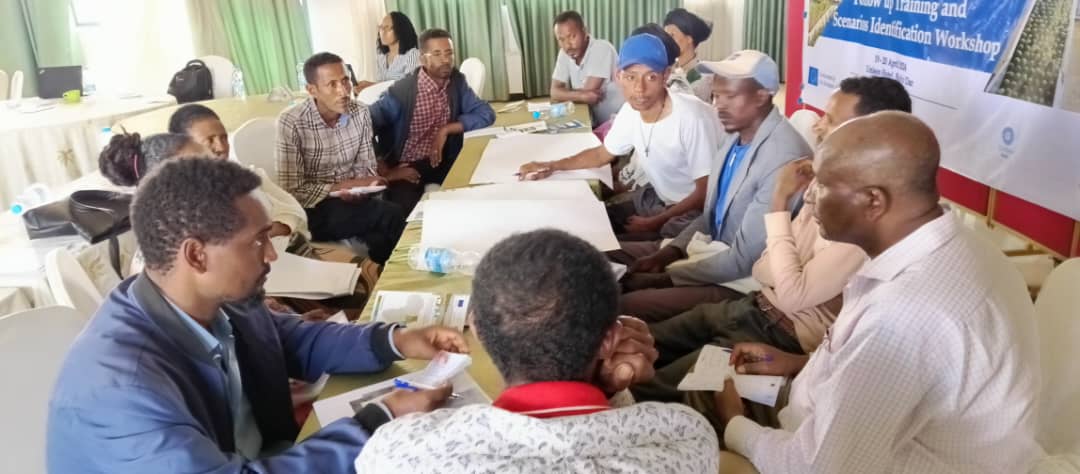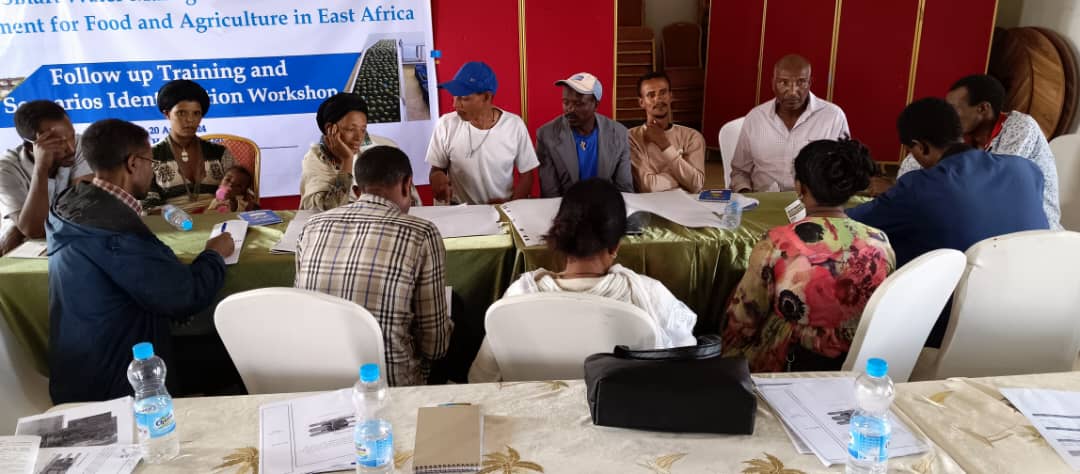ASARECA, CIHEAM Bari, Water Land Resources Centre train Ethiopian farmers in selection of Agricultural Best Management Practices
BY BEN MOSES ILAKUT & MOSES ODEKE
BAHIR DAR, ETHIOPIA: ASARECA, and the International Centre for Advanced Mediterranean Agronomic Studies-Institute of Bari (CIHEAM Bari) on April 19-20, 2024, joined Ethiopian partners, Water and Land Resources Centre in a follow-up training and selection of possible BMP scenarios workshop targeting farming communities in Koga catchment in Bahir Dar, Ethiopia.
The workshop was intended to share knowledge among the farmers and technical teams supporting project implementation as well as training farmers in application of BMPs was held at Unison Hotel, Bahir Dar, Ethiopia. The meeting attracted 41 participants (25 men, and 16 women), most of them from Koga, the project site. During the meeting, selected trainers of trainees (ToTs) led and stimulated discussions in the implementation of the three Best Management Practices (BMPs) selected for Ethiopia. The BMPs include agroforestry, crop rotation, and efficient water management through Water Users Associations.
CIHEAM Bari represented
The International Centre for Advanced Mediterranean Agronomic Studies-Institute of Bari (CIHEAM Bari) was represented by the Project Administrative Lead, Dr. Gaetano Ladisa, who joined online to flag off the follow up meeting. Dr. Gaetano noted that the WATDEV project was a unique research initiative based on participatory inputs of local communities aimed at entrenching the farmers’ needs in research and development outcome delivery.
“Through our engagement with farmers, we harness their capabilities to the best extent we possibly can. This also further clarifies the farmer’s needs to researchers who are then able to make technical inputs to maximise the development aspirations of the project,” Dr. Gaetano noted.

Dr. Gaetano engages partners ASARECA, CIHEAM Bari, Water Land Resources Centre shortly before departure to Bahir Dar to interact with farmers
Regular engagement of farmers for integration
It is hoped that such regular engagement with the last mile beneficiaries—the farmers—enables them integrate acquired knowledge and competencies with their traditional knowledge as well as offer technical partners the opportunity to carry out a participatory feasibility and sustainability analysis for Best Management Practices.
Through the workshop, stakeholders involved in implementing the Best Management Practices and Innovations, inquired into issues of interest regarding agroforestry, crop rotations, water use efficiency through water Users Associations and benefits of combinations of Best Management Practices.

Distilling successful Best Management Practices
According to Dr. Tena Alamirew, Deputy Director General Water and Land Resource Centre, Addis Ababa University, the follow up meeting was focused on tracking farmers’ use of selected Best Management Practices and innovations. “We will distil successful BPMs as trainers interact with farmers and as farmers provide face-to-face feedback. The meeting also helps in collecting emerging reactions and perceptions from communities, document consistent views and challenges faced, as well as capture specific needs and technical solutions to adapt the selected BMPs to the local content,” Dr. Tena Alamirew noted.
Training to enhance capacities
The field-based training follows the training of trainers on Best Management Practices for local partners, that was held in Italy from 11-16 December 2023. During the training, four technical support staff from Ethiopia received skills on the design and application of the selected BMPs for Ethiopia namely: agroforestry, crop rotation, and efficient water management through Water Users Associations.
The same training model is being out scaled in ASARECA Member States of Kenya and Sudan alongside the North African country of Egypt. The training also builds on awareness sessions implemented with local stakeholders in 2023 where perceptions of stakeholders on the priority objectives for implementation of the BMPs were sought and documented.

Farmers from Koga catchment, Bahir Dar, Ethiopia participate during the training by WatDev project partners, ASARECA, CIHEAM Bari, and Water Land Resources Centre
ASARECA supporting farmer-centric models
Commenting on the follow up meeting, ASARECA Head of Programmes, Moses Odeke said the WATDEV project deliberately uses regular consultations, sensitisation, and training of farmers as strategic approaches to ensure wider dissemination of the BMPs. “Ultimately, our aim is to ensure wider adoption of BMPs leading to sustainable soil and water management, increased productivity and improved livelihoods in the Koga Catchment area in Bahir Dar, Ethiopia.”
Integrated soil fertility management incorporating improved crop varieties, combined with use of inorganic and organic fertiliser, crop management options such as weeding, proper plant spacing, and crop rotation is a long-term strategy for ensuring soil health as it breaks the pest and disease cycle, improves soil fertility, water holding capacity and crop yields. Since agriculture is sensitive to climate change, Agro forestry provides a key strategy for mitigating impacts of climate change through promoting Climate Smart Agriculture, as it integrates climate and water smart practices in trees, crops, and livestock production. Some benefits include improved soil fertility, diversified products such as wood, timber, fruits, vegetables, cereals, spices, herbs, medicines, household income, better nutrition, and enhanced women engagement, creation of mini climate and expansion of biodiversity.

Farmers prioritized avocado as the best intercrop for Barley, Wheat and Teff among others
Farmers embrace agroforestry
During discussions, farmers spoke fondly of agroforestry as a beneficial BMP. They cited the intercrop of avocado with wheat, barley, teff, and spices such as onions, cardamom, and turmeric as their preferred options when faced with increased canopy. Explanations of experiences and knowledge by the farmers in implementing the best practice was a great learning opportunity for technical teams. The farmers also highlighted key challenges they faced including limited land for expansion, high cost of seedlings, lack of awareness on the importance of agroforestry, lack of adequate water for cultivating avocado, and destruction of fruit trees by livestock at young age. They workshop came up with some practical solutions and options to mitigate these challenges.


Farmers’ prioritize job creation as key
On Day 2 of the training, the results of a participatory prioritisation exercise conducted in 2023 in Koga study area, was presented to the farmers for confirmation and validation. During the prioritisation exercise, farmers were asked to vote for their top objective among three options under social, policy, economic, environmental dimensions.
The results showed that on the social cultural aspects, the farmers chose creation of job opportunities for the local communities as their key priority, while of on the policy perspective, they chose legislations that are easy to understand.
Concerning governance, the farmers indicated that they were interested in improved partnerships, while on the economic outlook, they were more concerned about increasing crop production and income.
As regards environmental factors, the farmers were concerned with increasing access to ground water, controlling soil erosion, increasing productivity, constant flow of safe water, and ensuring a healthy environment.
Practical Selection of BMP Scenarios
Modelling is a key component under the WatDev Project. As such, farmers were taken through the importance of modelling in aiding decision-making regarding implementation of BMPs. Guided by technical teams, the farmers engaged in group work to identify potential areas for implementing BMPs as well as changes arising from implementation of the BMPs.
Under Agroforestry, the farmers identified type of crops and trees anticipated to be grown and where the trees will be grown within the irrigation scheme.
Under crop rotation, they considered the crop rotation sequence and type of crops they hope to grow for successive years, as well as cereal-legume rotations they foresee to implement in the study area. Farmers were also guided to include legumes in their rotations to facilitate in improving soil fertility.
Under efficient water management, they considered which irrigation infrastructure they could improve, establishment of shallow water wells in areas currently not serviced by the irrigation canals as well as establishment of an efficient water tariffing system to facilitate efficient and equitable water distribution among the farmers.

 About WATDEV
About WATDEV
The Climate Smart Water Management and Sustainable Development for Food and Agriculture in North-East Africa (WATDEV) Project is implemented by CIHEAM-BARI, Italy in collaboration with European partners (SKYKE, CNR and ISRIC) and African partners to promote innovations at the water energy and agriculture nexus to enhance economic development and resilience to climate change in Kenya, Ethiopia, Sudan and Egypt.
In Ethiopia, the Project is implemented in partnership with the Water and Land Resource Centre, Addis Ababa University; in Kenya, it is implemented in collaboration with the Kenya Agriculture and Livestock Research Organization (KALRO) and in Sudan, it is implemented in collaboration with the Water Research Centre. It brings together academia, policy, and private sector to create an environment conducive to agricultural innovation and modern transformation.
ASARECA’s coordination role
ASARECA is responsible for coordinating the implementation of the project activities in the four African partners, who mainly are part of its wide constituents in the National Agricultural Research Systems (NARS). The project is supported by DG International partnerships (INTPA) of the European Union under the Development of Smart Innovation through Research in Agriculture (DeSIRA) initiative and led by the Italian Agency for Development Corporation. (AICS).
